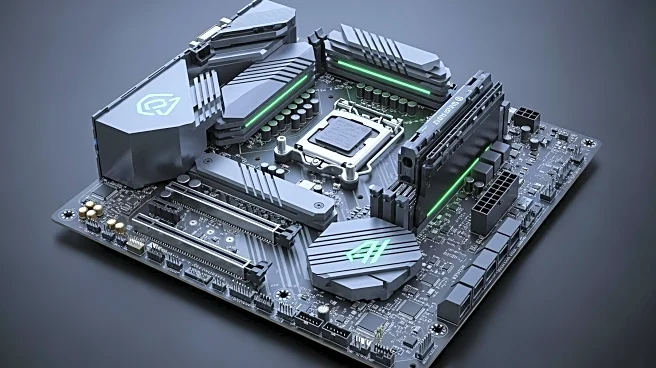What's Happening?
NVIDIA's stock remains near record highs, driven by strong demand for its AI chips, which resulted in a 56% revenue increase last quarter. However, the company faces challenges from U.S.-China trade tensions
and rising competition from AMD. U.S. export controls have restricted NVIDIA's ability to sell advanced GPUs to China, a significant market for the company. In response, NVIDIA has developed downgraded 'China edition' chips to comply with regulations. Meanwhile, AMD has secured major deals, including supplying AI chips to OpenAI and Oracle, intensifying competition in the AI chip market.
Why It's Important?
NVIDIA's situation underscores the complex interplay between geopolitical factors and corporate strategy in the tech industry. The company's reliance on the Chinese market for a substantial portion of its revenue highlights the risks associated with international trade tensions. Additionally, the competitive landscape is evolving, with AMD's recent successes posing a potential threat to NVIDIA's market dominance. These dynamics could impact NVIDIA's future growth and profitability, influencing investor sentiment and the broader tech sector.
What's Next?
NVIDIA's CEO Jensen Huang is set to meet with industry leaders at the upcoming APEC summit, where discussions may focus on easing trade restrictions. Any progress in U.S.-China trade negotiations could alleviate some of the uncertainties facing NVIDIA. The company's upcoming earnings report on November 19 will be closely watched for indications of continued growth and how it plans to navigate the competitive and geopolitical challenges. Investors and analysts will be particularly interested in NVIDIA's strategies to maintain its leadership in the AI chip market amidst these pressures.









